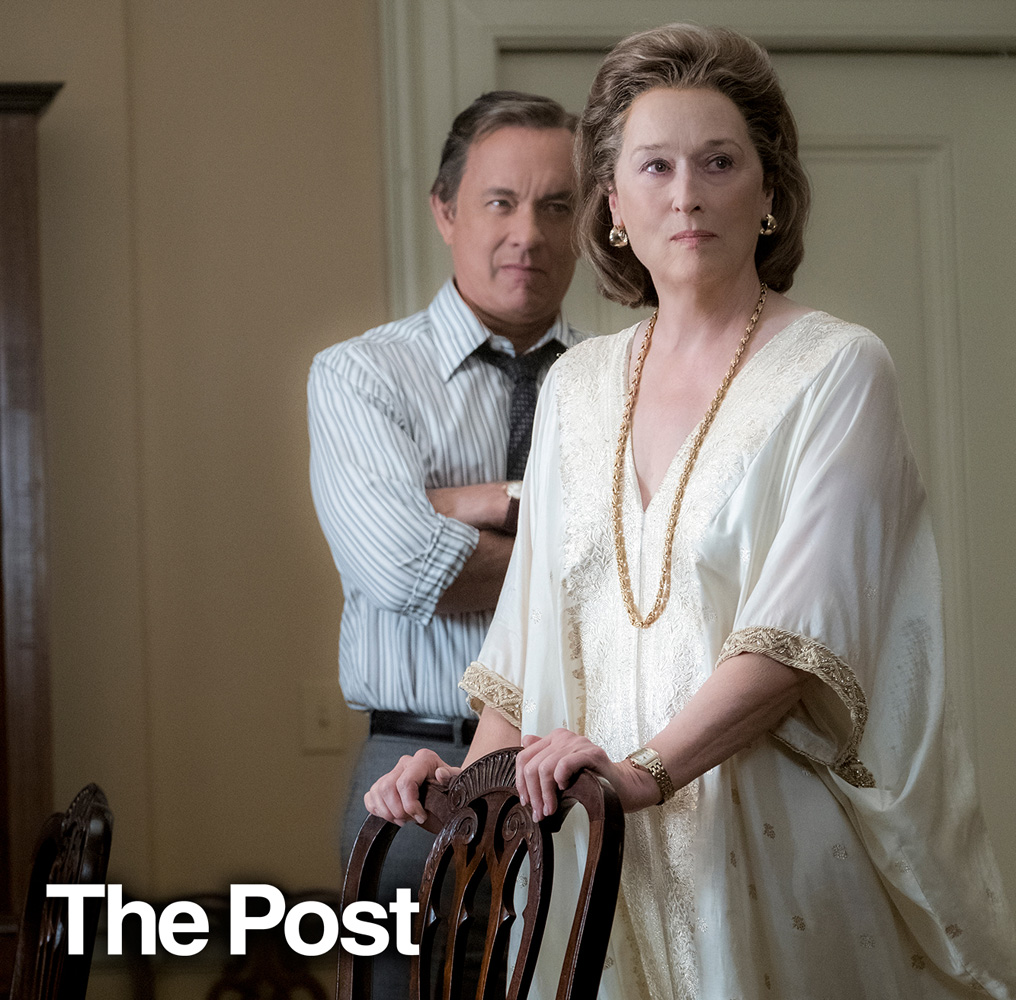For almost 40 years Meryl Streep, has portrayed an astonishing array of characters in a career that has cut its own unique path. She has won three Academy Awards and just days ago, in a record that is unsurpassed, she earned a 21st Academy Award nomination for her role in Steven Spielberg’s, The Post (in Philippine cinemas February 21).
Marking their historic, first-ever on-screen collaboration, Spielberg directs Meryl Streep and Tom Hanks in The Post, a thrilling drama about the unlikely partnership between The Washington Post’s Katharine Graham (Streep), the first female publisher of a major American newspaper, and editor Ben Bradlee (Hanks), as they race to catch up with The New York Times to expose a massive cover-up of government secrets that spanned three decades and four U.S. Presidents. The two must overcome their differences as they risk their careers – and their very freedom – to help bring long-buried truths to light.
The real Katharine Graham would go on to become one of the most influential women in America, a groundbreaker who unexpectedly shattered the glass ceiling to become head of The Washington Post Company’s media empire, then willed herself to become the grand dame of bold journalism. But at the time of the Pentagon Papers, she was still finding her feet, still learning how to operate as the only woman with a seat at the table.
While the external story is a matter of history, it is the internal story of Graham’s rise that Streep hones in on in The Post. She began her research with Graham’s Pulitzer Prize-winning memoir. “It’s so beautifully written, so deeply felt that it’s one of the most compelling autobiographies I’ve read,” she says. “From it, I really got a sense of something her children and friends also talked about with me: that she was not always the confident Katharine Graham that people came to know as the first woman head of a Fortune 500 company. She was once someone very unsure of herself and the product of her time, a time when women weren’t expected to do much outside the realm of good works, good child raising and household keeping. It’s hard to really imagine how different that time was unless you lived through it. And I did. I was on the cusp of the rising opportunities for women, and I certainly benefited from many of them. But she was in the vanguard, so she was not completely comfortable with taking the reins of leadership.”
She continues: “She took a stand when it was very difficult for her to do that, when she was not only doubted by her adversaries, but also by her friends. I think it’s a particularly lonely thing to do, to take a stand under those circumstances. Everybody in this story does that. Every single person takes a risk. And that more than anything I think this is the story of the film: how ordinary people can really move the needle and change the course of history. Big things can come from one little person.”
Embodying Graham—whose stately physique often made her appear more in control than perhaps she felt—was also a key to the interior. “For me, it wasn’t as important to try to look precisely like her, as it was just to capture something of her personal grace – and also the tentativeness that was there behind decisions. It was a very interesting challenge,” says Streep.
The Post also marks Streep’s first real collaboration with Spielberg. “Steven works very hard, and he thinks very hard, but it’s like play for him, because he has the absorption and freedom of a child,” she observes. “It’s improvisatory, his filmmaking, which shocked me. I don’t know what I was expecting, but we came in and there was no rehearsal. That really surprised me. Instead you just go in and start shooting and he just keeps mixing it up. It was so spontaneous and really thrilling. People were on their toes, believe me.”
Spielberg says of Streep: “The extent to which Meryl plumbed the depths of Katharine Graham … I don’t know how she did it and I’m the director.”
The Post is distributed in the Philippines by United International Pictures through Columbia Pictures.
